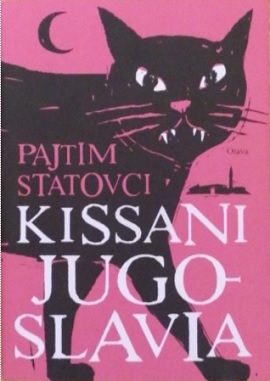Related Research Articles
The Finlandia Prize is a set of Finnish literary prizes awarded by the Finnish Book Foundation to "celebrate reading and highlight new Finnish first-rate literature." Considered the most prestigious in the nation, they are awarded annually in three categories: fiction, non-fiction and children's and youth literature. The prize was first awarded in 1984.

The Order of the Lion of Finland is one of three official orders in Finland, along with the Order of the Cross of Liberty and the Order of the White Rose of Finland. The President of Finland is the Grand Master of all three orders. The orders are administered by boards consisting of a chancellor, a vice-chancellor and at least four members. The orders of the White Rose of Finland and the Lion of Finland have a joint board. The President of Finland wears the Star of the Order of the Lion of Finland.

Jaakko Hämeen-Anttila was a Finnish academic researcher, serving as a professor of the Arabic language and Islamic studies at the University of Edinburgh. Before that he was a professor at the University of Helsinki.

Johan Verner Weckman was a wrestler, who is the first Finnish Olympic gold medalist.

Toivo Nestori Aro was a Finnish sportsleader and an aquatics athlete, who won 10 Finnish championships.

Fingerpori is a Finnish comic strip written and drawn by Pertti Jarla. It started in Helsingin Sanomat in February 2007, and is comprehensively distributed in major provincial newspapers. Literally, fingerpori is a thimble, but fingerporillinen is a proverbial small amount of alcohol, and Pori is a Finnish town.
The Runeberg prize is a Finnish literature prize founded in 1987.

Erkki Pohjanheimo is a Finnish television producer and director.

Tuomas Kyrö is a Finnish author and cartoonist. He has written novels, columns, causeries and plays and drawn comics and cartoons.
The Grump is a fictional character created by the Finnish author Tuomas Kyrö for a causerie series.
Virpi Talvitie is a Finnish illustrator and graphic artist.

My Cat Yugoslavia is the first novel by Pajtim Statovci. The novel explores the lives of a woman in Kosovo and of her son as a refugee in Finland. The book was first published in Finnish in 2014 and in English in 2017. It received the 2014 Helsingin Sanomat Literature Prize. It was made into a play and staged at the Finnish National Theater in Helsinki in 2018.
Pajtim Statovci is a Finnish novelist. His debut novel, Kissani Jugoslavia, was published in 2014, winning the Helsingin Sanomat Literature Prize for best debut novel in Finnish for that year, and was published in 2017 as My Cat Yugoslavia in the UK and US. It was made into a play and staged at the Finnish National Theatre in Helsinki in 2018. His second novel, Tiranan sydän, won the Toisinkoinen Literature Prize for 2016, and was published as Crossing in the UK and the US in 2019. Following the 2019 release of his third novel, Bolla, his publisher announced in February 2024 the upcoming September release of his fourth, Lehmä Synnyttää Yöllä.
In the run-up to the 2023 Finnish parliamentary election, various organisations carried out opinion polling to gauge voting intentions in Finland. Results of such polls are displayed in this list.

The Malmi Cemetery is a large cemetery located at the corner between Ring I and the Lahti Highway (E75) in the Malmi district in Helsinki, Finland. It is the largest cemetery in Finland in terms of both area and number of burials. It was a former training camp site for soldiers under the administration of the Finnish Crown. In the early 20th century, Malmi Cemetery even had its own train connection and water tower.

Aarne Emil Kauhanen was a Finnish officer of the Central Detective Police (EK) and its successor, the State Police (ValPo), with special responsibility for aliens in the 1930s and 1940s. During the Continuation War, he acted as a liaison between the Finnish and Nazi German police authorities and was involved in the recruitment of the Finnish SS Battalion. Kauhanen also beat and tortured Jewish refugees during interrogations. After the war, he escaped to South America, where Kauhanen died in unclear circumstances in 1949. According to a memoir, one of his victims recognized and later shot him.
Finnish alcohol culture refers to the drinking culture regarding beverages containing ethyl alcohol in Finland and to the manners and habits connected to the drinking culture.

Antero "Antti" Rokka is a fictional character in Väinö Linna's 1954 war novel The Unknown Soldier. Antero Rokka is a well-known figure in the story, and he has taken on an almost archetypal role in Finnish culture. According to Väinö Linna's own testimony, Rokka's character is based on Linna's comrade-in-arms, Viljam Pylkäs. It is also said that Linna borrowed the character's name from a real-life Ingrian soldier, Antti Rokka, whom Linna would have gotten to know after the war, and that the Rokka in the book would also have the character traits of the real Rokka.
References
- ↑ Helsingin Sanomat Literature Prize goes to Satu Taskinen
- ↑ "Runoilija Erkka Filander on kaikkien aikojen nuorin Hesarin palkinnon voittaja". HS.fi. November 14, 2013. Retrieved December 3, 2013.
- ↑ Antti Majander (13 November 2014). "Pajtim Statovcin romaani voitti HS:n kirjallisuuspalkinnon". Helsingin Sanomat . Retrieved 3 December 2015.
- ↑ Antti Majander (18 November 2015). "Saara Turunen voitti Helsingin Sanomien kirjallisuuspalkinnon". Helsingin Sanomat . Retrieved 3 December 2015.
- ↑ Majander, Antti (November 16, 2016). "Hanna Weseliuksen Alma!-romaani voitti HS:n kirjallisuuspalkinnon täpärän äänestyksen jälkeen". HS.fi (in Finnish). Retrieved September 13, 2017.